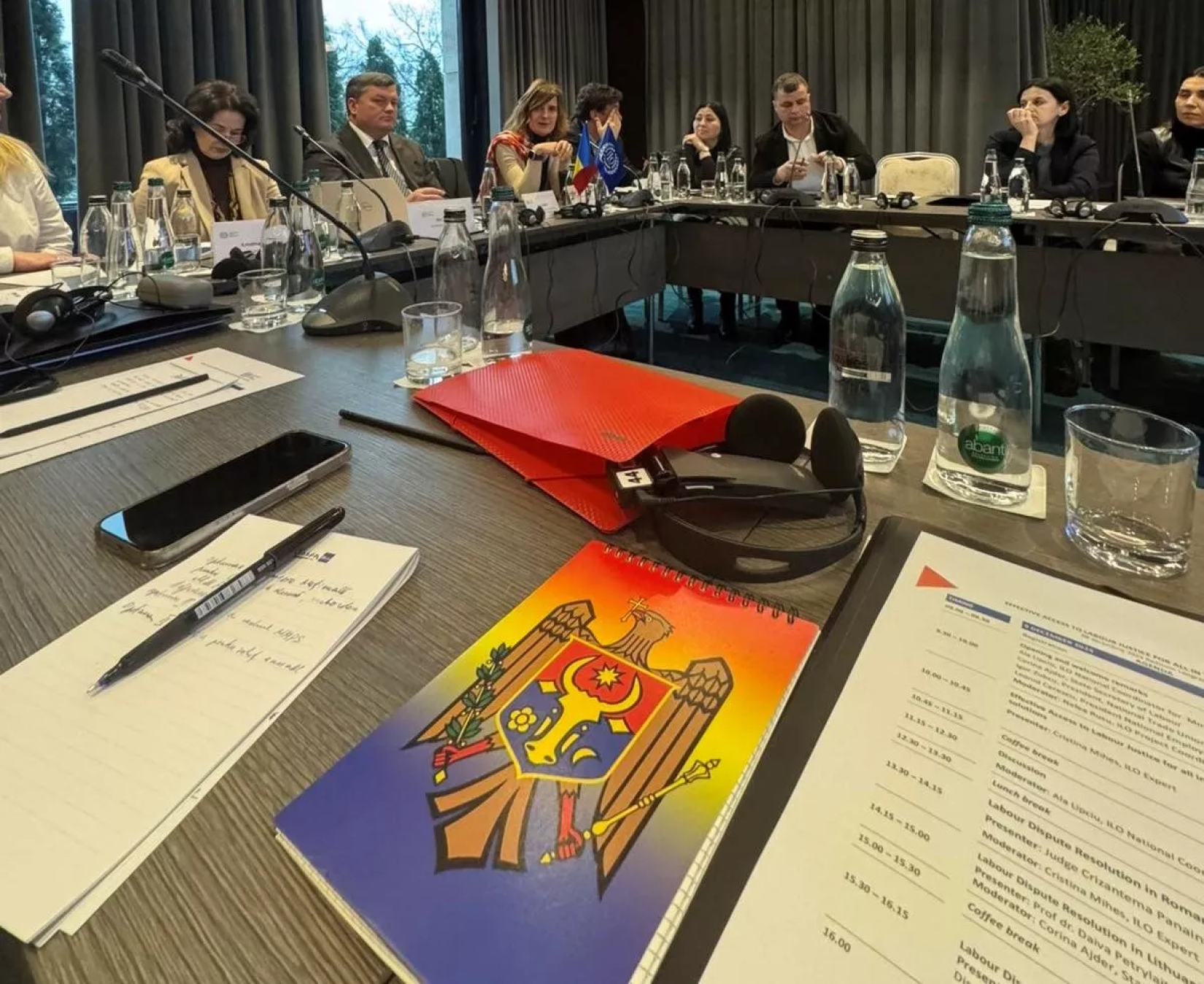Labour justice for every worker in Moldova
17 December 2024
- In a significant stride towards enhancing labour justice in Moldova, the ILO has unveiled the report “Effective access to labour justice for all in the Republic of Moldova: challenges and solutions”.

This report is poised to assist the Moldovan government and social partners in making informed decisions to reform the labour dispute resolution system. It is part of the ILO EU-funded global project “Trade for Decent Work”.
The evolving labour market dynamics, characterized by temporary and informal employment, new work arrangements, and blurred lines between employees and self-employed contractors, have exacerbated job insecurity and precariousness as well as the need to provide access to resolution systems for disputes between workers and employers. Indeed, temporary, informal and self-employed contractors generally do not have access to such systems. These changes, coupled with economic hardships and job losses, underscore the necessity of ensuring equitable access to labour justice.
During recent tripartite consultations on labour law reform in Moldova, the limited effectiveness of both judicial and non-judicial mechanisms for resolving labour disputes was highlighted. The tripartite constituents concurred on the urgent need to reform the current system, guided by a comparative, evidence-based analysis.
The report reviews Moldova’s existing mechanisms for resolving individual and collective disputes, with a focus on extra-judicial procedures and their effectiveness, where data is available. It also examines relevant systems in Ireland, Lithuania, Romania, and Serbia, focusing on pre-litigation dispute resolution and non-judicial methods for preventing disputes. By comparing current trends in labour dispute resolution, the report outlines the advantages and disadvantages of various legal and institutional approaches. It concludes with recommendations and cost estimates to aid decision-making.
Corina Ajder, State Secretary of Labour in Moldova, stressed the importance of a robust regulatory and institutional framework for effective labour dispute management and resolution, both in courts and through dialogue and consensus-based solutions. She noted that the analysis is timely and will guide ongoing discussions on establishing an effective non-judicial system for labour dispute resolution in Moldova.
Moldovan workers and employers, and their organizations would be the first beneficiaries of functional and effective mechanisms and institutions for labour disputes resolution.
Igor Zubcu, President of the International Confederation of Trade Unions of Moldova, highlighted the importance of a mechanism for resolving labour disputes peacefully — one that is rapid, efficient, effective, and involves minimal costs. This is particularly important, as the legal 30-day deadline for settlement is often not adhered to in Moldova, with trials sometimes extending up to three years.
According to Vladislav Caminschi, Executive Director of the National Confederation of Employers of Moldova, quick, fair and affordable settlements of disputes arising in the workplace are conducive to sound and harmonious work relationships and to a higher productivity, and thus a guarantee of social peace and a factor of economic development.





